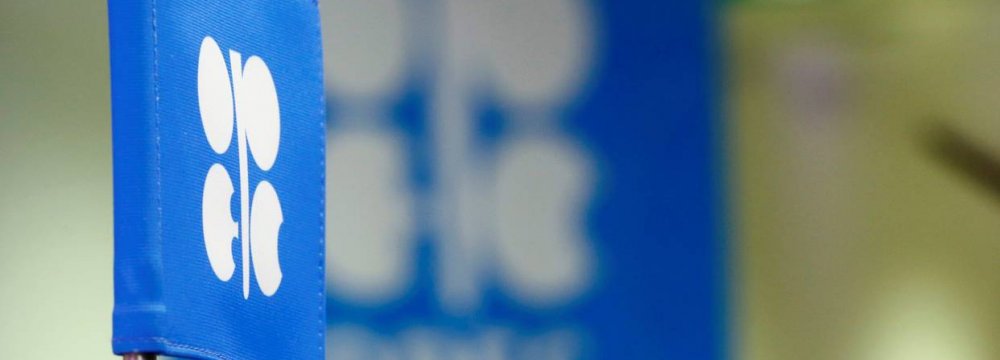
OPEC Chief: Russia Will Not Flood the Oil Market

Those worries have been compounded by rising US crude exports that threaten to loosen Russia and Saudi Arabia's grip on key overseas markets at a time of strong economic growth and rising demand for petroleum products, CNBC reported.
However, OPEC Secretary-General Mohammad Barkindo said President Vladimir Putin and Russian Energy Minister Alexander Novak have assured him Russia won't blink.
"I have heard and received assurances both from Mr. Alexander Novak and President Putin that they will remain committed to the OPEC, non-OPEC collaboration and the Declaration of Cooperation," he told CNBC on the sidelines of the Egypt Petroleum Show in Cairo. "They have proved this beyond any reasonable doubt through their high level of conformity to their supply adjustment, so I think there's no concern here. We are all in the same boat."
Market-watchers have long been wary of Russia's commitment to the deal. The nation's oil and gas giants are seen as reluctant participants in the agreement, which began in January 2017 and aims to keep 1.8 million barrels a day off the market through the end of the year.
Russia vowed in 2016 to cut its output by 300,000 barrels, but unlike the state-owned oil companies typical of OPEC, Russian energy giants are publicly-traded enterprises with shareholders.
Barkindo said it is in the interest of OPEC, Russia and other non-OPEC producers to continue coordinating policy even after the market rebalances. "This is a work in progress and we are confident that a global forum such as the Declaration of Cooperation will serve as an insurance against future severe volatility and downturn that we had seen beginning in the autumn of 2014," he said, referring to the start of a punishing three-year downturn in oil prices.
"I think we have learned enough lessons and we are beginning to put some building blocks in order to institutionalize this partnership," he said. Asked whether he could see OPEC members fighting among themselves and with the United States for market share in Asia, a key demand center, Barkindo said the concern to the contrary is whether producers have invested enough in projects to bring new supply on stream to meet future demand.


Trump weighs using $2 billion in CHIPS Act funding for critical minerals

Codelco cuts 2025 copper forecast after El Teniente mine collapse

Electra converts debt, launches $30M raise to jumpstart stalled cobalt refinery

Barrick’s Reko Diq in line for $410M ADB backing

Abcourt readies Sleeping Giant mill to pour first gold since 2014

Nevada army depot to serve as base for first US strategic minerals stockpile

SQM boosts lithium supply plans as prices flick higher

Viridis unveils 200Mt initial reserve for Brazil rare earth project

Tailings could meet much of US critical mineral demand – study

Kyrgyzstan kicks off underground gold mining at Kumtor

Kyrgyzstan kicks off underground gold mining at Kumtor

KoBold Metals granted lithium exploration rights in Congo

Freeport Indonesia to wrap up Gresik plant repairs by early September

Energy Fuels soars on Vulcan Elements partnership

Northern Dynasty sticks to proposal in battle to lift Pebble mine veto

Giustra-backed mining firm teams up with informal miners in Colombia

Critical Metals signs agreement to supply rare earth to US government-funded facility

China extends rare earth controls to imported material

Galan Lithium proceeds with $13M financing for Argentina project

Kyrgyzstan kicks off underground gold mining at Kumtor

Freeport Indonesia to wrap up Gresik plant repairs by early September

Energy Fuels soars on Vulcan Elements partnership

Northern Dynasty sticks to proposal in battle to lift Pebble mine veto

Giustra-backed mining firm teams up with informal miners in Colombia

Critical Metals signs agreement to supply rare earth to US government-funded facility

China extends rare earth controls to imported material

Galan Lithium proceeds with $13M financing for Argentina project

Silver price touches $39 as market weighs rate cut outlook

















